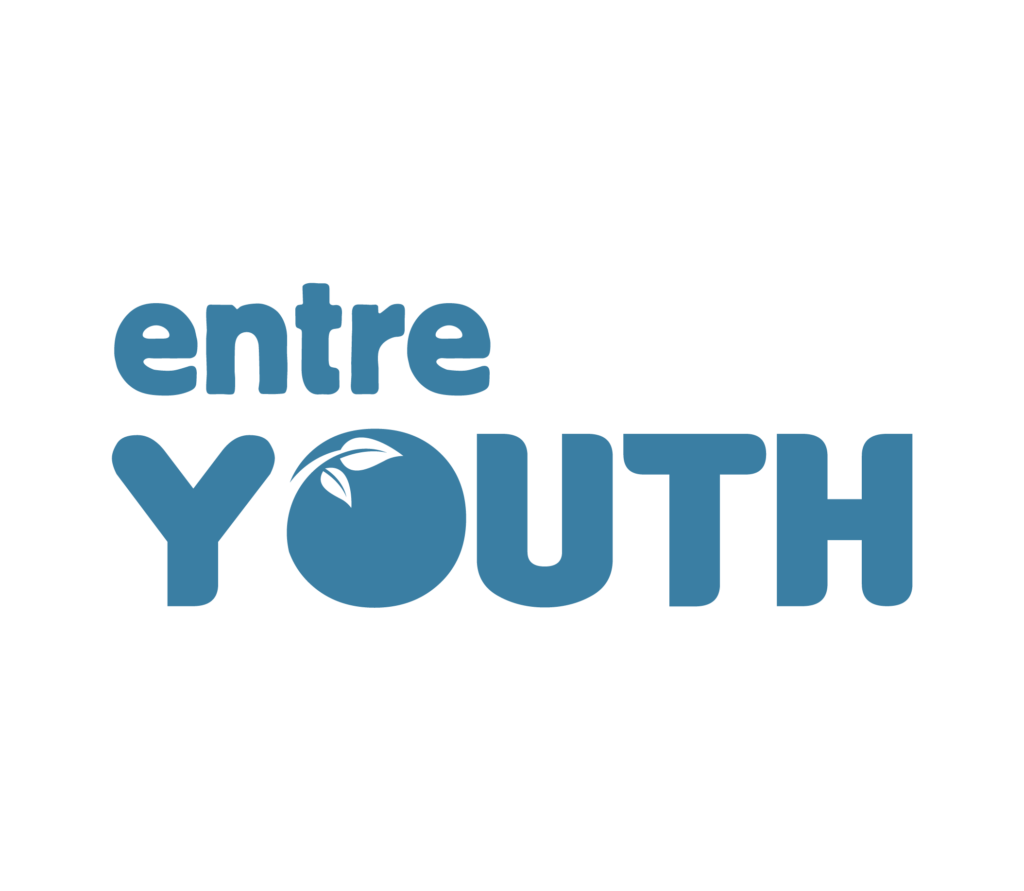Content on this site is licensed under a Creative Commons Attribution-NonCommercial 4.0 International License
Project
In the countries and target groups of the entreYOUTH consortium, there is an urgent need to address and respond to the apparent gap that exists in the provision of trainings and availability of trained youth workers with regards to equipping youth with enterprising skills in marginalized “alternative food networks” (informal networks of food provisioning and redistribution especially among local & vulnerable groups).


As a response to this gap, the project will provide an in-depth blended training guide for junior and senior youth workers on sustainable and circular urban food enterprising in co-creation with quadruple helix stakeholders and reliance on online training approaches enabling youth workers to improve the quality and effectiveness of their teaching.
The ultimate goal of this project is to equip youth with the know-how and experience to provide added value in alternative food networks by embedding sustainability and circular economy practices, especially those coming from vulnerable groups who do not possess entrepreneurial skills that would enable them to scale-up their ideas or to engage in social enterprising that would open up their opportunities beyond such alternative food.


In addition, entreYOUTH will facilitate digital certification according to Youthpass for youth participants and EntreComp and DigComp for youth workers.
Project Results
The project consists of a total of four results.
Project Result 1: Sustainable & circular urban food enterprising (SURFE) curriculum
– The curriculum will be non-formal in nature but also paving the way for formal validation and transferability. It will consist of four content units covering the basics of circular economy and food enterprising, the foundations of entrepreneurship and social entrepreneurship, how to motivate and train communities to engage in sustainable and circular practices, and finally, how to use digital technologies in order to facilitate a sustainable, circular and inclusive urban food enterprising.
Project Result 2: Youth worker train the trainer toolkit – The train the trainer toolkit (TTT) will be a modular programme combining different elements and pedagogies, and will build upon the EntreComp competence framework.The TTT will include: good practice for setting up internal train-the-trainer modules based on the EntreComp competence framework, access to case studies,
innovative non-formal teaching mechanisms and international resources at the same time, face-to-face real time 2-day training of the trainers during a workshop (C1 event), and behavioural strategies to empower youth.
Project Result 3: Community training event concept development (pilot)
– The community event concept development is basically a methodology that enables the piloting of all project results developed in entreYOUTH during the workshop (C1 event). The main goal C1 is to shape the knowledge of youth workers according to the curriculum in Result 1 and the pedagogies introduced in Result 2. Additionally, by focusing on on social challenges, the pilot aims to develop awareness of civic engagement, social innovation and community development.
Project Result 4: A community food sharing cloud platform
– Through the community food sharing cloud platform, individuals, supermarkets, companies, restaurants etc., can announce any food surplus and declare its availability. Additionally, people in need, NGOs/cooperatives that deal with urban/community redistribution, waste selectors and processors can sign up to
request food demand. The platform will also contain links to the curriculum (Result 1) and the contents of the TTT (Result 2). This result is also expected to develop competences in digital skills and social innovation among youth.
Partners’ Contribution
All partner organizations already have substantial experience in the fields of entreYOUTH and have a core interest in embedding entreYOUTH’s outputs into their operations.
UAL’s mission for civic engagement goes beyond higher education, and therefore, their interest in boosting their regional/national youth skills and work with youth organisations (for non-formal education delivery) globally is highly
relevant. UAL has substantial expertise in: responsible entrepreneurship, digitalization, digital business models, online learning platforms (including MOOCs), human behaviour and CSR. UAL will enable access to social enterprising in agrifood outputs that will be further extended to serve the
needs of alternative food networks, and to methodologies for reaching
groups at risks (especially migrants).
YET firmly aims to help its dynamic audience (young entrepreneurs) to improve their managerial, networking and leadership skills through its activities. YET has trained more than 200 youth-triggered startups (from Greece and beyond), helping them scaleup their innovations and receive funding.
YET is also experienced in developing online platforms with community impact (e-skills training, e-mentoring, boosting exports, promoting art initiatives etc) and co-hosted and supported business plan / startup competitions. YET’s experience and strategy from Global Entrepreneurship Week projects will facilitate dissemination and impact.
SCA specializes in developing activities of education and protection of
children and youth, of promotion of volunteering, of education and environmental intervention, of promotion of gender equality, training actions foreducators, educational publications and the realization of projects of education and development & cooperation with other countries. The organization carries out sensitization and awareness-raising work on differences and inequalities, supporting the integration and role of families in the process,
promoting the training of specialized educators in different aspects. SCA will ensure that entreYOUTH will fully compass social groups at risk.
Similar to SCA, ITACA has a vast expertise on sensitization and awareness raising work on differences and inequalities, supporting the integration and role of families in the process, promoting the training of specialized educators in different aspects, thus facilitating areas of coexistence between young people of the same age and of different cultures through educational and cultural activities. ITACA has strong expertise in integrating young immigrants and supporting their development.
HELIXCONNECT will provide the market-oriented insights as well as
substantial expertise in EU project management. Its team members are a mix of experienced researchers, industry members and experts in knowledge and technology transfer with portfolios ranging from 10- 30 years of experience (that
include more than 30 concluded Erasmus+ projects). HELIXCONNECT’s tool (SCEnATi) enables circular food business model assessment.
CIP has strong expertise in increasing the employability of young citizens through social entrepreneurship education and practical experience in agribusiness and agriculture (food), technology, social innovation etc as well as in developing innovative non-formal education youth training methodologies. CIP’s “Society Profits” and “E-Design” projects will be extended to facilitate Result 2 an the TTT.




